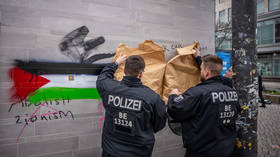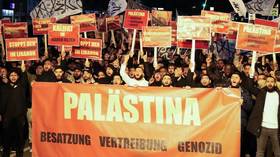Berlin police warn gays and Jews about Arabs

The Berlin chief of police, Barbara Slowik, has advised Jewish people and openly LGBTQ individuals to exercise caution when visiting certain city neighborhoods with significant Arab populations.
In an interview with the Berliner Zeitung newspaper on Monday Slowik insisted that there are no “no-go zones” in Berlin, and that the capital is just as safe as other parts of Germany and even “safer” than some other major cities in Europe.
“However, there are areas, and we must be honest at this stage, where I would advise people who wear a kippah or are openly homosexual or lesbian to be more attentive,” she said.
“There are, unfortunately, neighborhoods in Berlin with a majority of residents from Arab backgrounds where there is open sympathy for terrorist organizations and very blatant antisemitism,” she added, refusing to single out specific areas so as not to “defame any groups of people.”
German authorities have initiated more than 6,200 investigations into allegedly antisemitic incidents in the two years since the October 2023 Hamas attack on Israel. According to Slowik, the majority of these cases involve hate speech and vandalism rather than violent crime. Local violence against Jews is relatively rare, but the police chief said every such incident “is one too many.”
“Of the 1,300 investigations regarding violent crimes, it is mostly about attacks or resistance against police officers at demonstrations,” Slowik said. However, she added that the Jewish community in Berlin “sees the total number of antisemitic crimes, which raises their fear of becoming targets of attacks.”
When asked why authorities can’t simply ban pro-Palestinian and anti-Israeli rallies, Slowik insisted that freedom of assembly is a cornerstone of Germany’s democracy.
“A ban is not a panacea and not a permanent solution,” she said, arguing that even if authorities prohibit such gatherings, potential perpetrators of antisemitic violence would still remain in Berlin, just not in plain sight.















